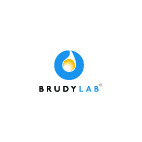Improvement in the visual field of Glaucoma Patients
The aim of this study was to evaluate the effect of citicoline, vitamin C, and docosahexaenoic acid (DHA) in patients with glaucoma. Methods: This was a prospective, randomized study. Patients with glaucoma were randomized to one of four groups and treated for 3 months with vitamin C, DHA, citicoline, or a combination of DHA and citicoline. We conducted a complete ophthalmic examination and visual fields each month and calculated the slopes of field indices. Changes in visual field indices (VFIs) and their slopes were assessed in each group and compared. Results: Seventy-three persons were included in the study.
Glaucoma is a progressive optic neuropathy that affects 3.54% of the population aged 40–80 years, and it is estimated that it will affect over 111 million people by 2040 [1]. In addition, glaucoma is the second leading cause of blindness, accounting for 14% of blindness causes [2]. Current scientific evidence indicates that lowering intraocular pressure (IOP) with medical, laser, and/or surgical treatment is effective in decreasing the risk of disease progression [3,4,5,6,7]. Nevertheless, several randomized clinical trials and clinical experience have shown that despite significant IOP lowering, some patients continue to show worsening optic nerve damage. For example, 45% of early glaucoma cases progressed in the treatment group of the Early Manifest Glaucoma Treatment Trial [4], and 20% of normal tension glaucoma worsened despite medical treatment in the Collaborative Normal Tension Glaucoma Study [7]. This clinical evidence supports the multifactorial physiopathology that is widely accepted for glaucoma.During the last few decades, considerable effort has been made to identify useful medical treatments for glaucoma that could complement IOP-lowering therapies. The recently released European Glaucoma Guidelines [8] state that there is no scientific evidence to support neuroprotective agents in the treatment of glaucoma. In contrast to this assertion, many patients with glaucoma are recommended to take nutraceuticals containing vitamins, citicoline, or ginkgo biloba, among others, in clinical practice. There are probably several reasons for the lack of evidence, including the difficulty of demonstrating neuroprotection in clinical studies, a lack of interest among pharmaceutical companies in performing complex and expensive studies on substances not protected by a patent, or, simply, an effective neuroprotective or neuromodulator agent has not yet been identified. Regardless of the reasons for the lack of evidence, the role of treatments other than IOP lowering remains to be determined, and there is a need for well-designed randomized controlled trials.Citicoline is an indispensable intermediary in the synthesis of cell membrane phospholipids and a potential neuroprotectant or neuromodulator used in some countries to facilitate recovery from stroke lesions or for the treatment of neurodegenerative diseases [9]. The substance is well-tolerated, and there is limited evidence in small studies suggesting a possible positive effect on visual function in patients with glaucoma [9,10,11]. Docosahexaenoic acid (DHA) is an omega-3 polyunsaturated fatty acid with demonstrated antioxidant properties [12], with limited evidence on its potential beneficial effects in patients with glaucoma [12,13].The present study aimed to evaluate the effect of citicoline and DHA on the visual field (VF) of patients with glaucoma.

Position your company at the heart of the global Pharma industry with a CPHI Online membership
-
Your products and solutions visible to thousands of visitors within the largest Pharma marketplace
-
Generate high-quality, engaged leads for your business, all year round
-
Promote your business as the industry’s thought-leader by hosting your reports, brochures and videos within your profile
-
Your company’s profile boosted at all participating CPHI events
-
An easy-to-use platform with a detailed dashboard showing your leads and performance